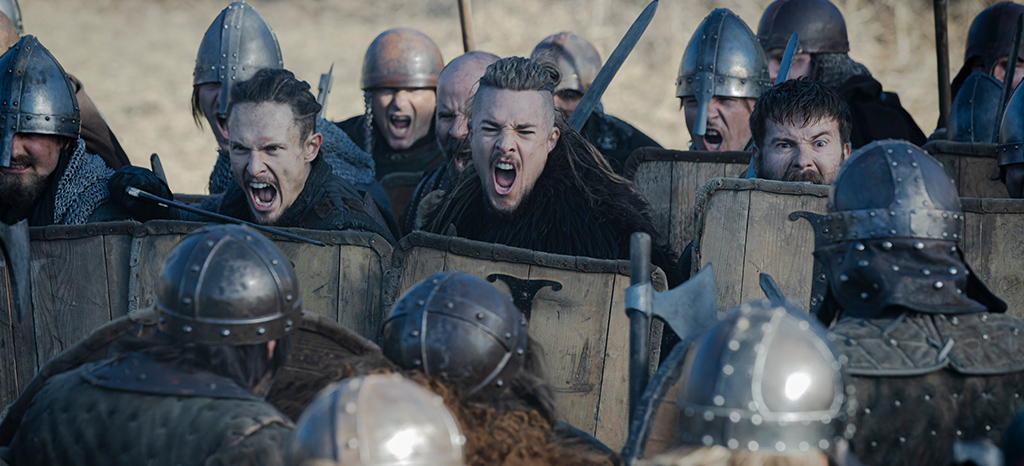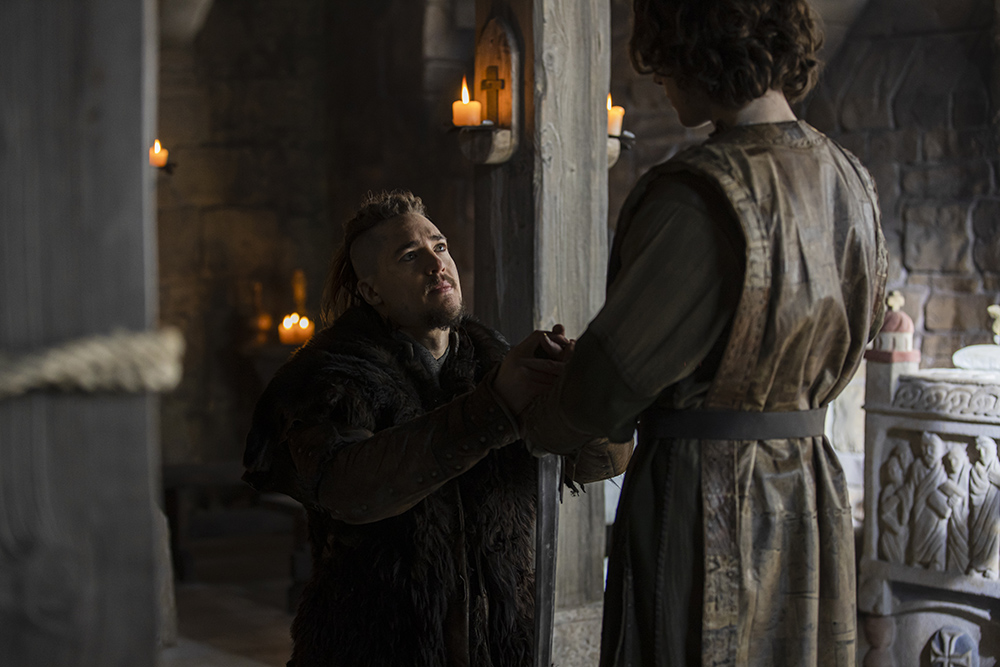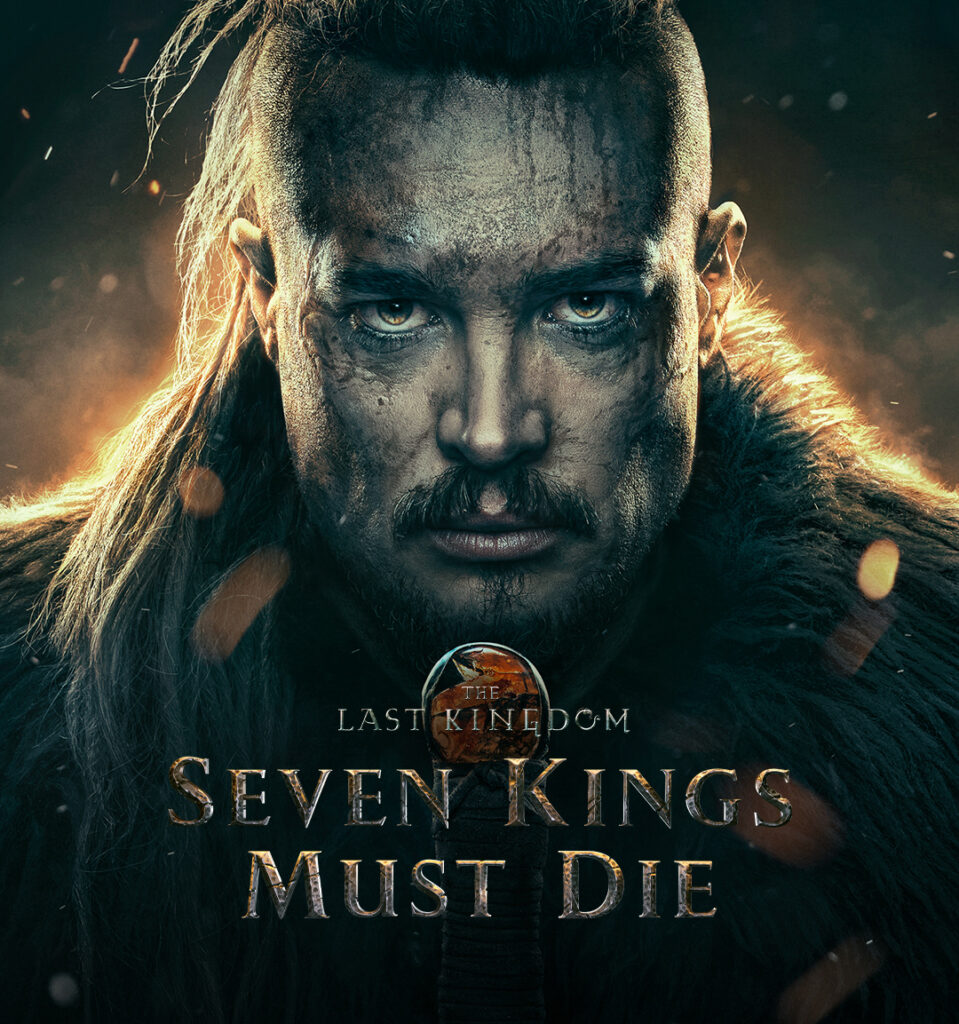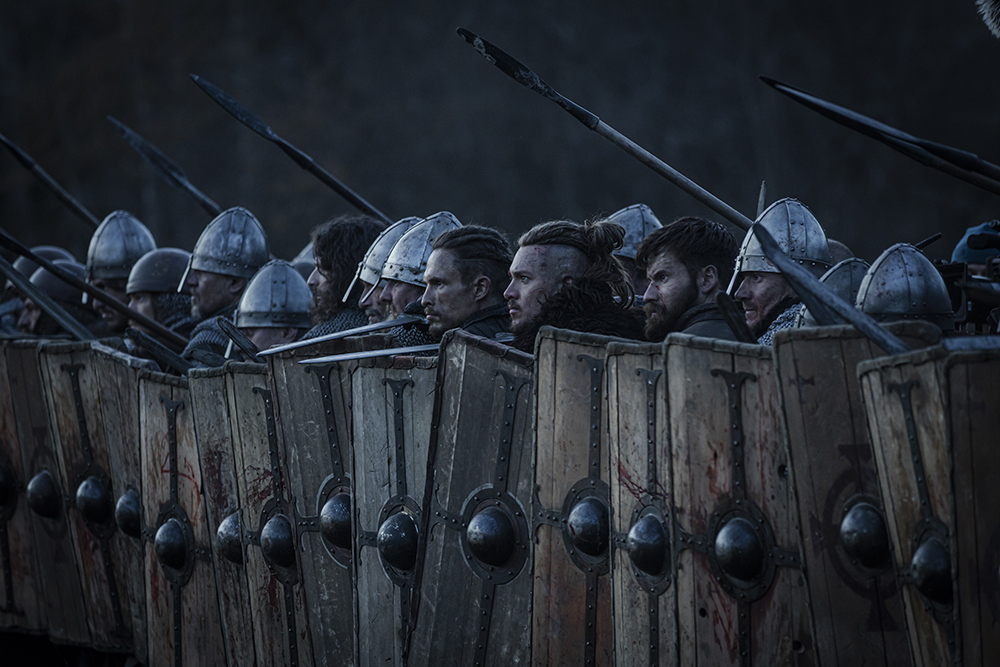
No Guest Found in this category
Recently released on Netflix, Seven Kings Must Die is a historical fantasy film that continues and concludes the story of acclaimed TV series The Last Kingdom. Set in the British Isles, the series and film take us a thousand years into the past, to a time when England was just a dream and the land it now comprises was divided into smaller kingdoms ruled by Saxons but threatened by invading Danes.
The series’ protagonist is Uhtred, a Saxon who was raised by Danes, and over five seasons it follows his rise from dispossessed outcast to powerful warlord and right hand of kings. By the time the film begins, Uhtred has reclaimed Bebbanburg, the fortress stolen from him as a boy, and three of the Saxon kingdoms – Mercia, East Anglia and Wessex – have been united. The fourth kingdom, Northumbria, is held by Uhtred as a neutral buffer zone between the Saxon lands and their rival Scottish kingdoms. Edward, king of the Saxons, wanted to add Northumbria to his conquests and fulfil his own father’s dream of a united England, but Uhtred refused to swear fealty to him, objecting to his hostile treatment of Danish settlers. The film begins with Edward’s death and his son Aethelstan moving to secure his inheritance, but Aethelstan’s right to the throne is challenged by his younger half-brother, Aelfweard, on the basis that Aethelstan was born outside of marriage.
But how real was all of this? The answer is ‘quite real’. King Edward and his sons were real figures who struggled to protect their land from Danes and Norsemen who invaded the British Isles in the ninth, tenth and eleventh centuries. (These invaders as commonly known as Vikings, but the word viking simply means ‘raider’ and doesn’t refer to the peoples as a whole – it isn’t used in the show or film). The suspicions about Aethelstan’s legitimacy were real too, and consequently historical events matched what we see in the film: Aethelstan’s right to be king was challenged by Aelfweard.

Alexander Dreymon as Uhtred and Harry Gilby as Aethelstan in ‘The Last Kingdom: Seven Kings Must Die’
In reality, the sticky situation cleared itself up when Aelfweard died a few weeks later, and while this would certainly have been convenient for the real Aethelstan, there is no evidence that he was responsible, let alone that he killed Aelfweard directly (as he does in the film). Yet while the brutal knifing we see in Seven Kings Must Die is an invention, it is not an unrealistic one; kings in the early tenth century held their positions through ruthlessness unfettered by modern conceptions of morality, and the real Aethelstan was no exception.
The main drama of Seven Kings Must Die kicks off as Aethelstan goes down a dark path. Manipulated by his lover Ingilmundr, he launches an unprovoked invasion of the Scottish Lowlands, making an enemy of King Constantine II. This invasion was real, but we don’t really know why it happened, which leaves a convenient gap in the story that Seven Kings Must Die deftly fills, exploring the onscreen Aethelstan’s romance with another man.
While it’s difficult to confirm the sexuality of the real-life Aethelstan, we do know that he died unmarried and childless. Equipped with the knowledge that Queer people have existed throughout all time periods (despite their frequent erasure from history), Seven Kings Must Die attempts to balance historical accuracy with creative drama, juggling the personal stakes that keep audiences hooked.
 Another example of the film filling in gaps is the invention of Ingilmundr himself, Aethelstan’s fictional lover. As the film progresses, we learn that Ingilmundr is a spy and a traitor who deliberately seduced Aethelstan and encouraged him to invade Scotland in order to galvanise his enemies into forming an alliance. The Scottish kings of Alba and Strathclyde join with the Norse kings of Shetland, Orkney and Man, and the entire alliance is orchestrated by a Danish warlord named Anlaf, who is Ingilmundr’s master.
Another example of the film filling in gaps is the invention of Ingilmundr himself, Aethelstan’s fictional lover. As the film progresses, we learn that Ingilmundr is a spy and a traitor who deliberately seduced Aethelstan and encouraged him to invade Scotland in order to galvanise his enemies into forming an alliance. The Scottish kings of Alba and Strathclyde join with the Norse kings of Shetland, Orkney and Man, and the entire alliance is orchestrated by a Danish warlord named Anlaf, who is Ingilmundr’s master.
In reality, the idea that Aethelstan’s enemies united as the result of a cunning scheme orchestrated by just a few people stretches belief to breaking point, but Anlaf and the Scottish kings were real men whose alliance really did imperil Aethelstan’s kingdom, and in the absence of historical records the film is able to invent its own explanations for how the alliance came about. In any case, the battle that follows is lifted straight from the pages of history.
In August 937, King Aethelstan marched his army north to face the coalition of his enemies in the Battle of Brunanburh. We don’t know exactly where the battle took place, but archaeological evidence seems to be zeroing in on a site in north-west England. An enormous slaughter ensued, and some of the annals mention ‘five kings’ dying in the battle. There were lots of kings back then, and most of them only ruled small areas, so it is highly unlikely that the casualties came specifically from Orkney, Shetland, Man and Strathclyde as we see in the film, but men from those places may well have taken part. In any case, Constantine and Anlaf were the only confirmed survivors, for Aethelstan was the victor and drove his enemies from the field.
But what of Uhtred? In Seven Kings Must Die, we see him fight valiantly for Aethelstan, having revealed Ingilmundr’s plot and reconciled with the king after a devastating falling-out. He is badly wounded but survives the immediate aftermath, and the film leaves his fate deliberately ambiguous. The last time we see him, he is trembling with pain on the boundary between the real world and Valhalla. But was he really at Brunanburh, and did he live or die?
The answer, unfortunately, is that the Uhtred we see in the film and TV series never existed. His entire story is an invention cleverly woven into the fabric of real history, his actions used to explain historical events we know happened without knowing how or why. We see this dynamic played out in the series itself, with Uhtred’s absence from the chronicles being mentioned multiple times, and his importance highlighted regardless.
Interestingly, though, there was a real Uhtred of Bebbanburg. He was born a century after the events of the film, but in a way he was still vitally important to the story. You see, his descendants survived in an unbroken line all the way to today, and one of them is a man called Bernard Cornwell, the author of the book series upon which The Last Kingdom and Seven Kings Must Die are based. There would be no Uhtred without Uhtred.
But what of England? Its establishment as a country is one of the core themes running through the show and film, and while Seven Kings Must Die ends with Aethelstan reigning over the newborn nation, the postscript mentions that Danes and Saxons continued to battle each other ‘until 1066’.

Arnas Fedaravicius as Sihtric, Alexander Dreymon as Uhtred and Mark Rowley as Finan in ‘The Last Kingdom: Seven Kings Must Die’
The explanation there is that the Battle of Brunanburh was a major turning point that marked the end of the first phase of conflict between Saxons and Danes. Aethelstan was succeeded by his half-brother Edmund, as we see Uhtred arranging at the end of the film, and Edmund’s descendants continued to rule England through several decades of relative peace. However, raids from Scandinavia eventually resumed, and a Norse king named Sweyn Forkbeard actually seized the English throne. He was the first of three Norse kings to rule England, and while a descendant of Edmund eventually reclaimed the throne, they proved to be the last English king from the House of Wessex.
In 1066, England was invaded and conquered by a duke named William, a man whose Dane ancestors conquered Normandy – ‘land of the northmen’ – in what is now northern France. So, in a way, it was the Danes who emerged triumphant in the great conflict with the Saxons, for it was a man with their blood who achieved the most lasting control over the country. His descendants would rule England for hundreds of years, right through the Middle Ages.
Yet the country that William conquered and his descendants ruled was born of a Saxon dream and forged in Saxon blood, and the Battle of Brunanburh is widely held to be the event that secured its existence forever. Imagine how Aethelstan would have felt if he knew that future historians would unanimously label him ‘the first king of England’. Think too of his men – men not unlike our heroes Uhtred and Finan, Pyrlig and Sihtric – men we will never know, but who lived and fought for the dream of England. Think how they would have felt, leaning muddy and exhausted against one another, bloody but victorious at Brunanburh, had they known that the country they birthed in that terrible battle would last for over a thousand years.
It was the Normans who inherited the nation, but the idea of England has never died.
Destiny is all.
LEAD IMAGE: Arnas Fedaravicius as Sihtric, Alexander Dreymon as Uhtred and Mark Rowley as Finan in ‘The Last Kingdom: Seven Kings Must Die’









